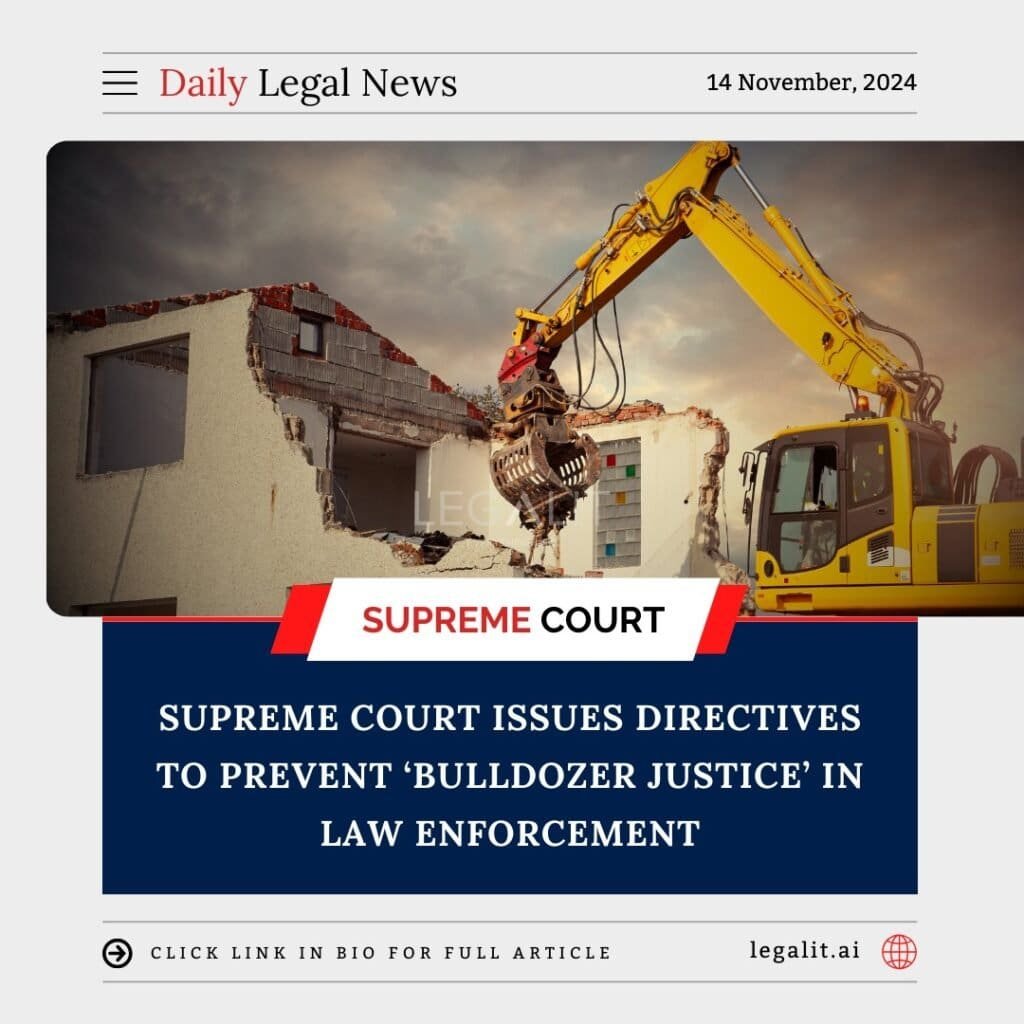
In a bid to address the concerning trend of “bulldozer justice,” where authorities carry out demolitions or punitive actions without due legal process, the Supreme Court of India has issued a set of directives aimed at curbing such practices. These measures underscore the court’s commitment to uphold procedural fairness and ensure that actions taken by state authorities do not violate citizens’ fundamental rights.
Background:
The term “bulldozer justice” has emerged as a critique of the practice of demolishing properties of individuals accused of crimes or alleged anti-social activities without providing sufficient legal recourse or due process. Such actions have been criticized as extrajudicial and as a means of punishment before guilt is legally established, raising concerns over potential misuse of state power.
Court’s Rationale:
In its directives, the Supreme Court emphasized that the rule of law must be preserved and that punitive actions by authorities should be grounded in due process. The court expressed its disapproval of actions that disregard established legal procedures, noting that they threaten the very foundation of a civilized legal system. The court stressed that such practices could lead to public mistrust in law enforcement and erode confidence in judicial institutions.
Supreme Court’s Directions:
The Supreme Court outlined several steps that must be followed by authorities before carrying out any demolition or punitive action, particularly in cases involving allegations of criminal conduct:
- Notification and Opportunity to Respond: Authorities must provide notice to the affected party, allowing adequate time to respond before any demolition is conducted.
- Compliance with Legal Provisions: All demolitions must strictly adhere to the legal provisions and be authorized through proper channels.
- Judicial Oversight: Any punitive demolitions must involve a prior order from a competent court, ensuring that the actions are justified and proportionate.
- Review of Allegations: Demolition orders linked to allegations of criminal activity should be reviewed independently to prevent prejudiced actions based on unproven accusations.
- Avoiding Collective Punishment: The directives clarify that demolitions should not be used as a collective punishment mechanism, thereby safeguarding the rights of family members or occupants who may not be involved in alleged wrongdoing.
Existing Measures:
While existing laws provide a framework for demolitions under specific circumstances, the Supreme Court’s recent directives add an extra layer of safeguards, emphasizing the importance of judicial and procedural oversight. The goal is to ensure that any state action is fair, transparent, and respects the rights of individuals, even in cases where the state may have a valid claim.
Conclusion:
The Supreme Court’s directions serve as a reminder that the power to demolish property must be exercised within the boundaries of law and justice, and cannot be wielded arbitrarily. This move is seen as a significant step toward preventing abuse of power and preserving public trust in law enforcement. The court’s message is clear: upholding the rule of law is paramount, and “bulldozer justice” has no place in a democratic society.